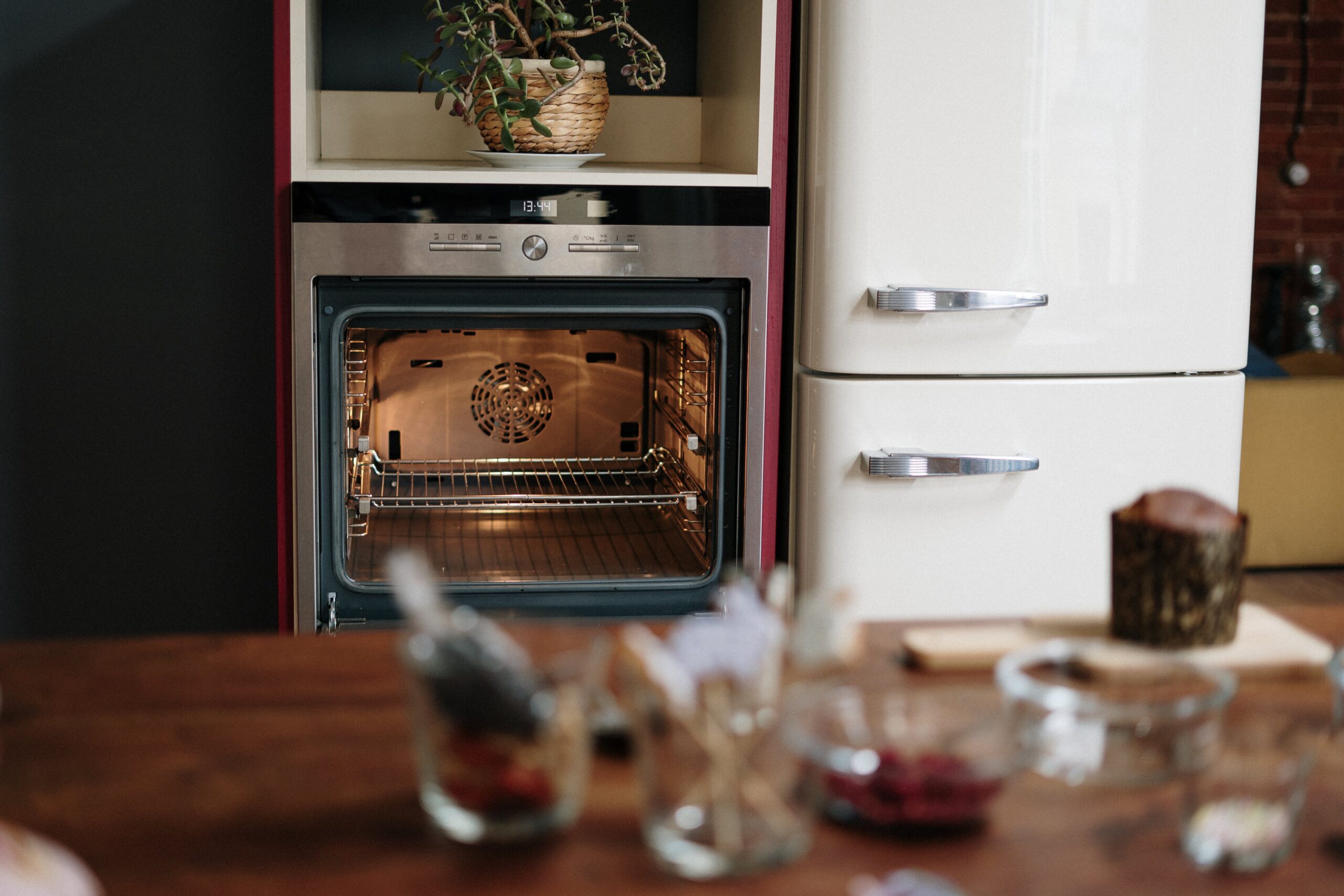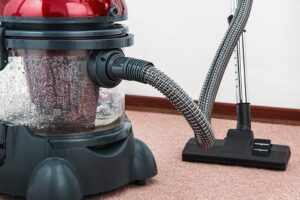A comprehensive guide on how to start an oven cleaning business
Are you captivated by the idea starting your own business by transforming grimy ovens into glistening appliances? Do you have a passion for cleanliness and a keen entrepreneurial spirit? If so, venturing into the world of oven cleaning could be your pathway to a rewarding and profitable business.
In recent years, the demand for professional oven cleaning services has surged as individuals and businesses seek efficient solutions to maintain their kitchen appliances. Whether you’re an experienced entrepreneur or a budding business enthusiast, this comprehensive guide will walk you through the essential steps to start and succeed in your own oven cleaning business in the UK.
From understanding the market and choosing the right equipment to crafting a solid business plan and attracting your first clients, we’ll delve into every aspect of establishing a thriving oven cleaning business.
Explore the steps to launching your very own oven cleaning business below:
1. Research and Planning:
- Market Research: Investigate the demand for oven cleaning services in your target area. Identify your competitors, their pricing, and the services they offer.
- Legal Requirements: Check local regulations and obtain necessary licenses and permits. Consider liability insurance to protect your business.
2. Business Plan:
- Define Your Services: Clearly outline the types of oven cleaning services you will offer. This might include standard oven cleaning, deep cleaning, extractor fan cleaning, etc.
- Target Market: Identify your target customers, such as residential clients, commercial kitchens, or both.
- Pricing Strategy: Determine your pricing structure. Consider factors such as the size of the oven, the level of cleaning required, and your competitors’ prices.
3. Equipment and Supplies:
- Oven Cleaning Equipment: Invest in professional-grade oven cleaning tools, including scrapers, brushes, cleaning solutions, and protective gear.
- Transportation: Depending on the scale of your operations, you might need a vehicle to transport equipment and travel to client locations.
4. Startup Costs:
- Equipment: Costs can vary, but a basic set of professional oven cleaning tools can range from £1,000 to £3,000. Dip tanks usually hover around £1,500 then any accessories.
- Transportation: If you don’t have a suitable vehicle, budget for the purchase of a small van.
- Marketing: Allocate funds for business cards, flyers, a website, and online marketing.
5. Legalities and Insurance:
- Business Structure: Choose a legal structure for your business, such as sole proprietorship or limited company.
- Insurance: Acquire liability insurance to protect your business in case of accidents or damage to clients’ property.
6. Marketing and Branding:
- Create a Website: Develop a professional website showcasing your services, prices, and contact information.
- Social Media: Utilize platforms like Facebook and Instagram to promote your services.
- Local Advertising: Distribute flyers in your target area, and consider local ads in newspapers or community boards.
7. Networking:
- Build Relationships: Connect with local businesses, especially those in the food industry, to establish partnerships.
- Word of Mouth: Encourage satisfied customers to refer your services and consider offering discounts for referrals.
8. Operations:
- Booking System: Implement an efficient booking system to manage appointments and schedules.
- Customer Service: Provide excellent customer service to build a positive reputation.
9. Expand Services:
- Diversify: Consider expanding your services to include other kitchen cleaning tasks or related services.
10. Continuous Improvement:
- Training: Stay updated on the latest cleaning techniques and equipment. Consider attending workshops or courses.
- Feedback: Collect and analyze customer feedback to improve your services.
Remember, success in the oven cleaning business requires dedication, quality service, and effective marketing. As your business grows, you may need to hire additional staff and invest in more equipment. Stay adaptable and responsive to market demands to ensure long-term success.
What are the benefits to starting an oven cleaning business?
Oven cleaning is an excellent cleaning business idea to consider starting and can offer several benefits, over other small businesses which can make it an attractive venture for entrepreneurs. Here are some key advantages:
- High Demand:
- Ovens and kitchen appliances require regular cleaning, and many individuals and businesses prefer to hire professionals for this task. The demand for oven cleaning services is relatively consistent.
- Recurring Revenue:
- Ongoing maintenance and the need for periodic cleaning mean that you can establish recurring relationships with customers. This can result in a steady stream of repeat business.
- Low Competition in Specialized Niche:
- The oven cleaning industry is a specialized niche with less competition compared to broader cleaning services. This can provide you with a unique selling point and help you stand out in the market.
- Scalability:
- As your business grows, you can scale operations by hiring additional staff and expanding your service offerings to include other kitchen cleaning tasks. This scalability can contribute to increased revenue.
- Low Entry Barriers:
- The startup costs for an oven cleaning business are relatively low compared to some other business ventures. Basic equipment, a reliable vehicle, and marketing materials are the primary requirements.
- Flexible Schedule:
- You have the flexibility to set your own working hours and schedule appointments according to your preferences. This can be particularly appealing for those who value work-life balance.
- Profit Margins:
- The profit margins in the cleaning industry, including oven cleaning, can be favorable. Once you cover your initial costs and establish a customer base, your ongoing expenses may be relatively low.
- Repeat Business and Referrals:
- Satisfied customers are likely to become repeat clients, and they may also refer your services to friends, family, or colleagues. Positive word-of-mouth can significantly contribute to business growth.
- Environmentally Friendly Options:
- Offering eco-friendly and non-toxic cleaning solutions can attract environmentally conscious customers. This can be a unique selling point for your business.
- Skill Development:
- Running an oven cleaning business allows you to develop technical skills in cleaning various types of ovens and kitchen appliances. Continuous improvement in your skills can enhance your reputation in the industry.
- Community Connection:
- A local oven cleaning business can become an integral part of the community. Building relationships with local businesses and residents can lead to long-term success.
- Personal Fulfillment:
- Providing a service that improves the cleanliness and functionality of kitchen appliances can be personally rewarding. Satisfied customers and positive feedback can boost your sense of accomplishment.
While there are many benefits, it’s important to conduct thorough research, plan strategically, and provide excellent service to ensure the success of your oven cleaning business.
Should you buy a franchise or start your oven cleaning business yourself?
Deciding whether to buy a franchise or start an oven cleaning business independently depends on various factors, including your preferences, experience, financial situation, and business goals. Are you ready to sign on the dotted line and follow a preprepared business path or would you rather brave the path alone?

Here are some considerations for both options:
Starting an Independent Oven Cleaning Business:
Pros:
- Flexibility and Control: Running an independent business gives you complete control over operations, marketing strategies, pricing, and business decisions.
- Brand Identity: You have the freedom to create and build your own brand, which can be tailored to your vision and values.
- Lower Initial Costs: Starting independently may have lower upfront costs compared to purchasing a franchise. You can choose your own equipment, marketing methods, and business model based on your budget.
- Adaptability: You can adapt and change your services, pricing, and strategies based on market demand and your own observations.
Cons:
- Lack of Established Brand: Building brand recognition can take time, and initial marketing efforts may require more resources to establish credibility in the market.
- Limited Support: You won’t have the ongoing support and training that a franchise might offer, and you’ll need to rely on your own resources for problem-solving and business development.
- Learning Curve: There might be a steeper learning curve as you navigate the industry, market, and business operations without the guidance provided by a franchise system.
Pros of buying a franchise:
- Established Brand and Reputation: A franchise comes with a recognized brand, established reputation, and a proven business model. This can potentially attract customers more easily.
- Training and Support: Franchisors typically provide training, ongoing support, and access to a network of experienced professionals. This support can be valuable, especially if you are new to the industry.
- Marketing Assistance: Franchises often have established marketing strategies and materials, saving you time and effort in developing your own promotional materials.
- Easier Market Entry: A franchise may have an easier time entering the market, as the brand is already known, potentially leading to quicker customer acquisition.
Cons of buying a franchise:
- Higher Initial Investment: Purchasing a franchise usually requires a higher initial investment, which includes franchise fees, royalties, and other expenses.
- Less Independence: Franchisees must adhere to the franchisor’s rules, regulations, and operational guidelines. This can limit your ability to make independent business decisions.
- Royalty Payments: Franchisees often pay ongoing royalties or fees to the franchisor, reducing overall profit margins.
Considerations:
- Experience: If you lack experience in running a business, a franchise might provide valuable support and guidance. If you are an experienced entrepreneur, you may feel confident in starting independently.
- Financial Situation: Evaluate your budget and financial capabilities. Franchises generally have higher upfront costs but may offer quicker returns with an established brand.
- Personal Goals: Consider your long-term goals. If you value independence and want to build a unique brand, starting independently might be preferable. If you prefer a proven system with support, a franchise could be a better fit.
Ultimately, the choice between starting independently or buying a franchise depends on your individual preferences, goals, and resources. Thoroughly research both options, and perhaps consult with a business advisor, before making a decision.
What equipment do you need to start an oven cleaning business?
Starting an oven cleaning business requires the right equipment to ensure efficient and effective cleaning. Here is a list of essential equipment you’ll need:
Protective Gear:
- Gloves: Durable and chemical-resistant gloves to protect your hands during the cleaning process.
- Eye Protection: Safety goggles or glasses to shield your eyes from cleaning agents and debris.
Cleaning Solutions:
- Oven Cleaner: A high-quality, effective oven cleaning solution. Consider eco-friendly options if you want to appeal to environmentally conscious customers.
- Degreaser: A strong degreasing solution to break down grease and grime.
- Scouring Pads or Brushes: Non-abrasive pads or brushes for scrubbing off dirt and residue.
Oven Cleaning Tools:
- Scrapers: To remove stubborn baked-on grease and food particles.
- Brushes: Different types and sizes for reaching various parts of the oven.
- Dip Tank: A container for soaking removable oven racks and parts in a cleaning solution.
Vehicle:
- Van or Vehicle: Depending on the scale of your operations, you may need a reliable vehicle to transport your equipment and travel to clients’ locations.
Safety Equipment:
- Fire Extinguisher: A portable fire extinguisher for emergencies.
- First Aid Kit: A basic first aid kit to address minor injuries.
Measuring Tools:
- Measuring Cups: For accurately measuring cleaning solutions.
Consumables:
- Microfiber Cloths or Towels: Soft, lint-free cloths for wiping and polishing.
- Trash Bags: To dispose of waste generated during the cleaning process.
Miscellaneous Tools:
- Screwdrivers and Wrenches: For removing and reattaching oven components if necessary.
- Vacuum Cleaner: To clean up loose debris and dust.
- Dustpan and Broom: For general cleaning purposes.
Personal Protective Equipment (PPE):
- Respirator or Dust Mask: Especially important if you’re using strong cleaning agents or dealing with dusty environments.
Business Supplies:
- Invoices/Receipts: Create professional-looking invoices or receipts for your customers.
- Business Cards: Essential for leaving your contact information with clients.
Uniform:
- Professional Uniform or Apron: A clean and professional appearance enhances your credibility.
Business Software:
- Scheduling Software: Use software to manage appointments and schedules efficiently.
Before purchasing equipment, carefully assess the types of ovens you’ll be cleaning and the level of service you plan to offer. Additionally, prioritize safety by investing in high-quality protective gear and ensuring that all cleaning solutions meet safety standards. Regularly maintain and replace equipment to ensure optimal performance.
CONCLUSION:
It’s evident that the potential for success is as bright as your freshly polished oven door. Armed with a comprehensive understanding of the market, the right equipment, and a strategic plan, you’re poised to make a significant impact in the world of professional cleaning services.
Remember, the key to sustained success lies not only in the meticulous care you provide to ovens but also in the relationships you build with your customers. Customer satisfaction, reliability, and a commitment to high standards will be the cornerstones of your business’s reputation.
Best of luck on your path to a thriving and prosperous venture!



